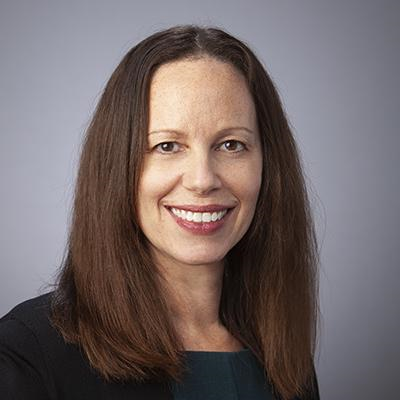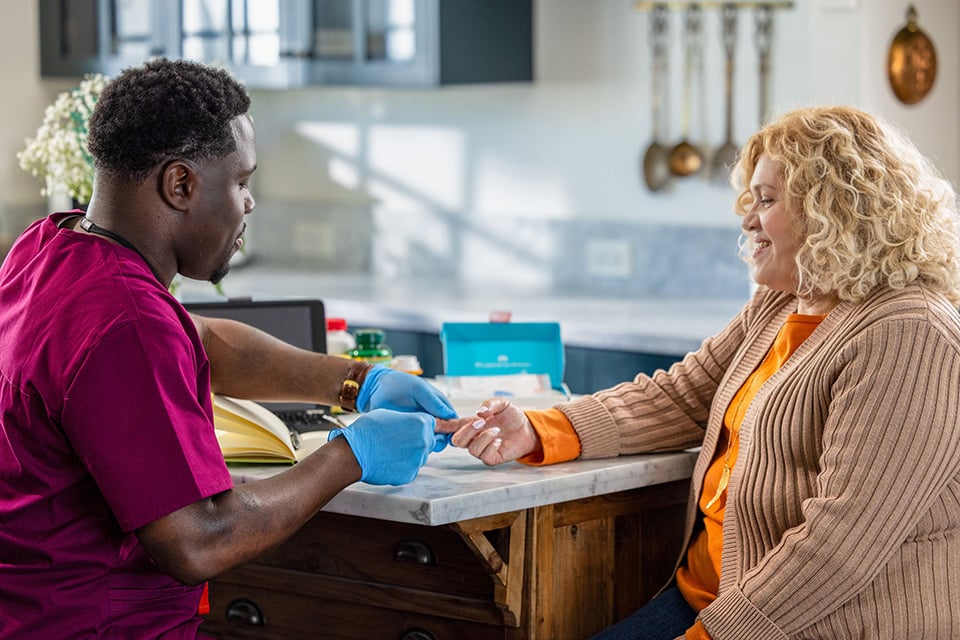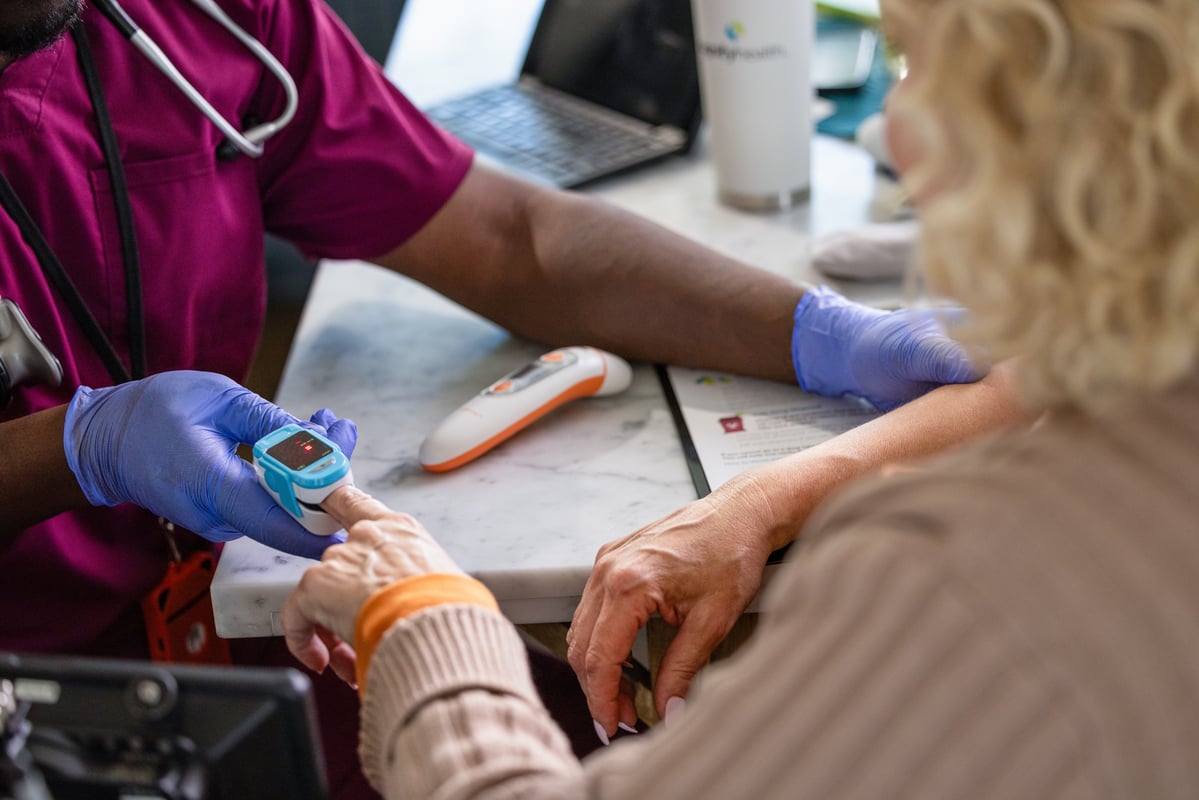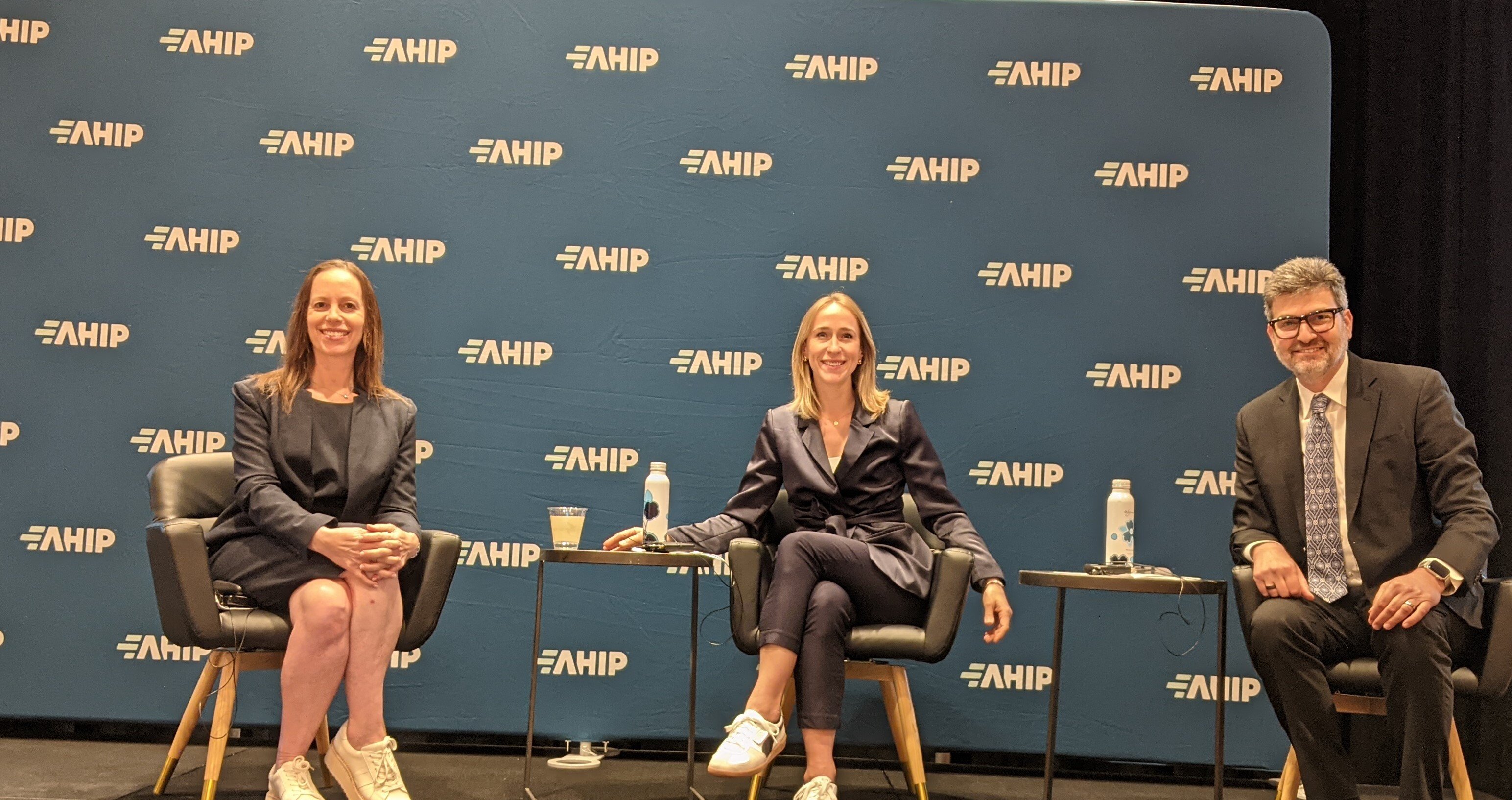
Heidi Schwarzwald, MD, MPH
Recent posts by Heidi Schwarzwald, MD, MPH
2 min read
Top Tips for Managing Diabetes During the Holidays
By Heidi Schwarzwald, MD, MPH on 11/14/25 8:00 AM
The holidays are a time for family, celebration and delicious food, but they can also make it harder to stay on track with your health goals. In fact, according to the American Diabetes Association, 49% of people with type 2 diabetes report that managing their condition is harder during the fall and winter holidays due to changes in their routines, sugary treats and added stress.
As we observe National Diabetes Awareness Month this November, it’s a great time to remember that with a little planning and mindful choices, you can enjoy the season without sending your blood sugar on a roller coaster ride.
Here are my recommended tips to help people with diabetes stay balanced, healthy and festive. While the focus is on maintaining stable blood sugar, I’ve found these tips helpful for anyone who wants to stay on top of their health goals:
Topics: Individuals and Families In-Home Health
4 min read
Aging on Your Terms: Staying Healthy & Independent
By Heidi Schwarzwald, MD, MPH on 9/24/25 5:53 AM
Healthy aging isn't just about luck and genetics; it's about empowering yourself to live your best life as you get older. By focusing on healthy habits, strong support networks and proactive care, you can significantly improve your quality of life, allowing you to age on your own terms.
Topics: Individuals and Families In-Home Health Diagnostic and Preventative Services Featured
3 min read
Simplifying Your Health Care: 3 Steps for Older Adults
By Heidi Schwarzwald, MD, MPH on 8/19/25 8:00 AM
I often hear from many older adults (aged 65 and older) about the complexities of the health care system. Many find it hard to access and difficult to understand.
Topics: Individuals and Families In-Home Health General
2 min read
Reflections from AHIP 2025: Transforming Cardiovascular Care through Hybrid Solutions
By Heidi Schwarzwald, MD, MPH on 7/17/25 10:00 AM
After spending a few days attending the annual AHIP conference in June, I’m still reflecting on what I discussed and learned from other leaders committed to shaping health care. While there, I had the privilege of moderating a conversation on cardiovascular care with two leaders immersed in heart health: Jana M. Goldberg MD, FACC, Chief Medical Officer for Heartbeat Health, and Terence Offenberger, MD, MBA, FACP, cardiologist and Deputy Chief Medical Officer for Aetna Medicare.
Our conversation was a timely precursor to recent data from the American Heart Association: deaths from heart attacks have declined by nearly 90% over the past 50 years, however, deaths from heart failure, arrhythmias and hypertensive heart disease have increased from 9% to 47% in the same timeframe. The urgent question ahead of us: what will it take to accelerate detection and intervention for cardiovascular diseases?
As Signify Health’s Chief Medical Officer, I believe the path to improving cardiovascular care requires an accessible, coordinated model that improves access to early detection, appropriate interventions and management. During AHIP, we focused on the work we’ve done to introduce a continuous echocardiogram (cECG) to eligible health plan members during the In-Home Health Evaluation (IHE) via a hybrid approach. Our internal analysis shows a yearly stroke risk between 4.8% and 7.2% for those diagnosed with atrial fibrillation (AFib) or flutter, emphasizing the importance of detection and timely intervention.
During the IHE, Signify Health clinicians will screen the member and apply the cECG monitor which captures cardiac activity. After 14 days of wear, the member mails the monitor to Heartbeat Health where a cardiologist reviews the data, interprets results and documents diagnosis, if appropriate. Members with abnormal results will be notified and have an opportunity to discuss next steps with a clinician. Additionally, all results will be shared with the member, their health plan and their primary care provider. This hybrid approach is foundational when it comes to connecting people to cardiologists that might not be readily accessible in their area, as well as providing an option to conveniently monitor their health at home.
I always think about solutions from the member’s perspective and what would ultimately make their health care experiences simpler. So, what does it look like to improve cardiovascular care for someone like Helen*, an 83-year-old woman with a history of heart failure?
Helen was identified as high-risk during an IHE and subsequently enrolled in our continuous ECG (cECG) monitoring program, a crucial step in proactively managing her heart health.
With the device application and functionality explained thoroughly by the Signify Health clinician, Helen embarked on a 14-day monitoring period from home. Upon completion, Helen returned the cECG device by mail, and her data was swiftly reviewed by a dedicated cardiologist who identified newly diagnosed atrial fibrillation, a condition that could have serious implications if untreated.
The cardiologist promptly contacted Helen to discuss the findings and her recommended next steps. This follow up ensured Helen understood her condition and the necessary actions to take. She was seen by the cardiologist, who prescribed Eliquis for stroke prevention and adjusted her heart failure treatment to include beta blockers and diuretics. This personalized care plan provided Helen with the support needed to manage her heart health effectively, overcoming many of the barriers that prevent so many from accessing the care they need.
With Helen’s story as a testament, it’s clear that collaborative, hybrid and member-centric innovations are not only enhancing cardiovascular care – they are redefining what’s possible to support millions of people like Helen.
*The individual featured in this case study is a real patient whose experience illustrates the impact of our cardiovascular care solutions. To protect her privacy, the name “Helen” has been used a pseudonym.
Topics: Executive Leadership Innovation Diagnostic and Preventative Services
5 min read
Stronger Minds, Healthier Lives: A Spotlight on Mental Health
By Heidi Schwarzwald, MD, MPH on 5/7/25 10:00 AM
May is Mental Health Awareness Month, an observance dedicated to sharing the importance
of mental health, overcoming stigma, and highlighting available support. At Signify Health, we
recognize the importance of mental health and the impact it can have on an individual’s overall
health and well-being. Our network of clinicians help people gain a more comprehensive view of
their health by conducting In-Home Health Evaluations (IHEs). During an IHE, clinicians identify
chronic conditions, close gaps in care, and address social determinants of health, making it
possible for health plan members to get connected to the right care for their unique needs.
As a physician dedicated to helping people on their path to better health, I have seen firsthand
the profound impact that mental health can have on overall well-being. Unfortunately, mental
health is still too often overlooked, but it’s a critical part of health that shouldn’t be ignored,
especially for older adults.
As we age, our mental health and well-being can be affected by many life changes such as
coping with a serious illness, experiencing social isolation or losing a loved one. In fact,
according to the National Council on Aging, nearly 25 percent of adults 65 and older are living
with a mental health condition such as anxiety or depression.
Having a plan in place to support mental health often leads to better physical health outcomes,
improved cognitive function and remaining independent longer1 . However, while mental health
conditions can be managed, many older adults go undiagnosed and untreated2.
Promoting Mental Health Awareness for Older Adults
Some common mental health concerns among older adults include:






